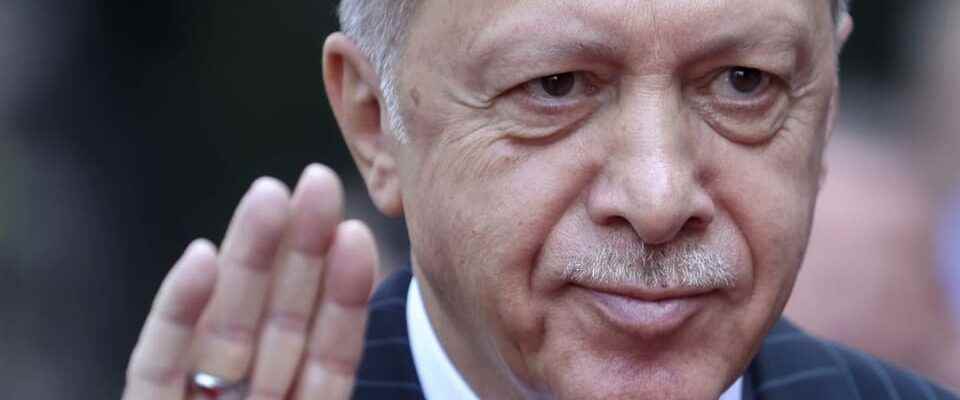contents
Balkans expert Thomas Seibert says the Turkish president has scored quite well with mediation offers, a lot of criticism from the West and his own economic agenda.
Turkish President Recep Tayyip Erdogan’s trip through the Balkan states of Bosnia-Herzegovina, Serbia and Croatia in the second half of the week pursued foreign and domestic policy goals. On the one hand, he wanted to consolidate his influence in the region, since Turkey still considers south-eastern Europe to be its sphere of influence due to the former Ottoman Empire and feels particularly connected to the Bosnians as Muslims.
Legend:
Turkish President Recep Tayyip Erdogan waves to the crowd during a reception in Sarajevo, Bosnia, September 6, 2022.
Keystone/AP/Armin Durgut
Bosnia-Herzegovina in particular is currently experiencing turbulent times again. Erdogan prayed at the grave of Alija Izetbegovic, who was Bosnian head of state in the 1990s. Accordingly, he offered Bosnia his services as a mediator in the tensions with Serbia, as Thomas Seibert, a freelance correspondent in Istanbul, reports.
Criticism of the Dayton Agreement
But Erdogan also promoted Turkey’s role as a mediator in Zagreb and Belgrade. In doing so, he once again tried his best to suggest that Turkey could do better than the USA, which mediated with the Dayton Agreement in the 1990s.
Erdogan is currently in vogue as a mediator between Russia and Ukraine. He wants to do something similar in the Balkans.
The Dayton Agreement made Erdogan directly responsible for the current problems and, at least publicly, did not receive any objection, as Seibert says: “Erdogan is currently in the process of acting as a mediator between Russia and Ukraine. He wants to do something similar in the Balkans.”
Clear economic interests
The Turkish economy is currently in a serious crisis. As far as the economic significance of the trip is concerned, according to Seibert, the Turkish construction industry is particularly well represented with major road construction projects in the Balkans. It would be correspondingly unfavorable if the tensions there turned into a new conflict. Hence the strong self-interest.
Erdogan was able to expand Turkish influence in the region.
Erdogan once again presented himself as a mediator between East and West during this trip and made the best of it, Seibert sums up: “The Turkish President also shared strongly with regard to the Ukraine conflict and accused the West of provoking Russia. Such criticism is very well received in Serbia.”
In Serbia, Erdogan also offered to mediate with Azerbaijan on energy issues. He also did a few arms deals because Serbia wants to buy Turkish combat drones: “Overall, the trip was a success for Erdogan,” says Seibert.
